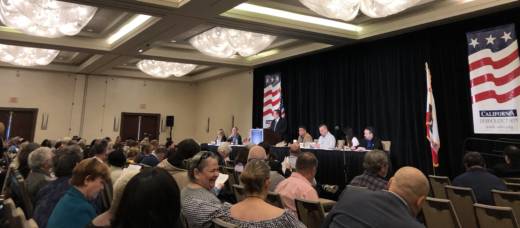Leaders of the California Democratic Party on Sunday approved a list of demands for state and federal lawmakers to respond to against sexual misconduct, at a meeting of the party's executive board in Millbrae.
The resolution against sexual harassment comes as allegations against lawmakers continue to come out of the state Capitol and the rest of the political world. Two sitting Democratic lawmakers in the state Legislature, Assemblyman Raul Bocanegra and Sen. Tony Mendoza, have been accused of sexual misconduct.
The party is calling for changes that include a confidential hotline to report harassment, mandatory training, an outside investigator to handle harassment claims and anti-retaliation protections.
"It has been over a month and the Legislature still has not given us our hotline," said Democratic Party Women's Caucus Chair Christine Pelosi. "They need to set one up for the California Capitol."
Last week, the state Senate announced that it will hire an independent law firm next month to investigate complaints.
